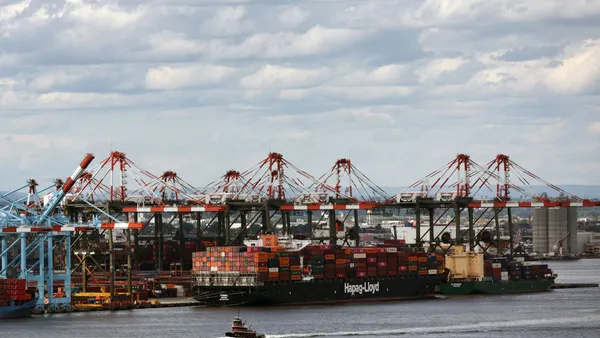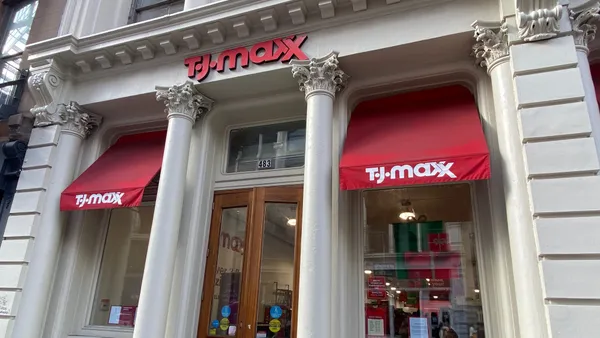Dive Brief:
- The impact of current tariffs on the shipping industry has been minimal and global volume has gone up 2% in the first half of 2019, but newly announced tariffs could pull down container volumes, A.P. Moller-Maersk CEO Søren Skou said Thursday on the company's earnings call.
- "If it all were to be implemented, we estimate it could reduce global trade growth by up to 1% at this point for the next year and as the [International Monetary Fund], has pointed out further escalation could cause the global economy to slow further and that of course will be negative for us," Skou said on the call, talking about the list four tariffs announced earlier this month.
- U.S. importers have dealt with the tariffs by shifting sourcing to Vietnam, Korea, Thailand, India and Mexico, Maersk said in its second-quarter report. These supplier shifts can result in higher freight rates and provide an opportunity for Maersk to sell logistics services, Skou said. But some Chinese exporters and U.S. importers have simply been dealing with the tariffs by allowing them to eat into margins, he said.
Dive Insight:
Maersk continued to see strong demand for supply chain services through the second quarter of 2019 with ocean freight revenue growing 3% compared to the same period last year and terminal revenue growing nearly 13%, but the carrier did see a slight (less than 1%) decrease in logistics revenue. The company's profit has increased to $134 million in the second quarter up from $15 million in Q2 2018.
The increase in container volume and the uptick in revenue happened with the trade war between China and the U.S. in full swing. But experts have voiced more concern about the list four tariffs as they would target a number of consumer goods from clothing to electronics.
Imports from China into the U.S. are already down, Skou said Thursday on Bloomberg TV, but the U.S. is still importing goods from elsewhere. "That has allowed us to manage the situation quite well," he said.
Tariffs are not what determines the demand for ocean shipping, though. The consumer determines the demand, and so far, consumers are still buying goods and salaries are increasing, Skou said.
Growing uncertainty in the global economy is happening in concert with the carrier's planning for the International Maritime Organization’s (IMO) global cap on sulfur. Maersk is currently testing scrubbers and plans to continue retrofitting ships "in the coming quarters," according to the company's report. It has also begun securing contracts for low-sulfur fuel supply, Skou said.
These preparations will affect the company's cash flow in the second half of the year, company CFO Carolina Dybeck Happe said on the earnings call.
"We believe we are well prepared at this point in time," Skou said of the IMO preparations.














